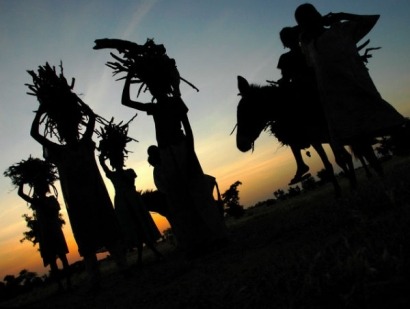
The Forum was co-organized by the ECOWAS Centre for Renewable Energy and Energy Efficiency (ECREEE) and the Global Bioenergy Partnership (GBEP), and was supported by the governments of Brazil, Canada, Mali and the US, as well as by UNDP Regional Energy Project for Poverty Reduction, UNEP, UN Foundation, and the Global Alliance of Clean Cookstoves.
It was also held as part of the UN’s 2012 International Year of Sustainable Energy For All, while the deliverables from the event will be presented in a GBEP meeting/event on the side lines of the RIO+20 United Nations Conference on Sustainable Development.
The meeting initiated a regional dialogue and peer-to-peer learning to support ECOWAS Member States in developing regional and national bioenergy strategies, which will help meet energy needs and create a vibrant and sustainable modern bioenergy sector that promotes economic growth, rural development, and poverty alleviation.
Benefits of bioenergy discussed
The Forum presented new methods and information developed by GBEP Partners and Observers on assessing the economic, environmental and social benefits and challenges of modern bioenergy. Special emphasis was given to the means to promote simultaneously food and energy security and the possibility of alleviating the negative health and environmental effects that derive from the use of traditional biomass fuelwood for cooking.
Furthermore, the Forum provided concrete examples of success stories from Africa and presented policy tools from UNEP, FAO and the Global Bioenergy Partnership that can promote the creation of a sustainable bioenergy sector that can drive economic growth without harming environmental and social conditions, and even improve them.
In his opening statement at the Forum on 19 March, the Honourable Habib Ouane, Mali's Minister of Mines, Energy and Water Resources, remarked that “the high population growth rate of Member States is among the challenges to meeting the region’s energy demand with serious health consequences.” He therefore urged Member States “to take adequate steps to address the challenges through appropriate policies within the framework of the ECOWAS White Paper to promote the region’s economic development”.
“The region continues to face major challenges in the sustainable supply of energy services despite its significant bio-energy resources,” added Ebrima Njie, the Commissioner for Infrastructure at the ECOWAS Commission. “The region has one of the lowest access rates of modern energy services, which inhibits the prospects for developing economic activities, enhancing food security and reducing poverty. According to official statistics, 70 per cent of the region’s overall energy demand comes from traditional biomass of wood and inefficiently produced charcoal, posing negatives effects on the environment, ecosystems and health of women and children.”
Emerson Kloss, Division Head of the Brazilian Ministry of External Relations, commented that the event provided an opportunity for a “vivid exchange of experiences among ECOWAS countries in the implementation of bioenergy programmes and with the potential of the region to use bioenergy as a tool for sustainable development”.
Meanwhile, Raffi Balian, Senior Advisor for Bioenergy and Renewable Energy at the United States Department of State, said that positive discussions were held on a number of important issues, including the need for clean cooking fuel and the importance of energy access for economic development, poverty alleviation, and food security.
The event will be followed by technical meetings to continue the discussion on a number of key issues including, but not limited to, resource assessments and mapping for sustainable bioenergy production; best practices in forest management; biomass to bioenergy conversion processes relevant to West Africa, including clean cookstove technology; and Integrated Food-Energy Systems and agro-forestry.
The Forum contributed to building consensus among the various segments of society in ECOWAS member states, namely policy makers and officials from the Ministries of Energy, Agriculture and Environment, private sector individuals, civil society representatives, and the general public, to develop a framework to broaden and accelerate the development and deployment of sustainable modern bioenergy.
For additional information:

